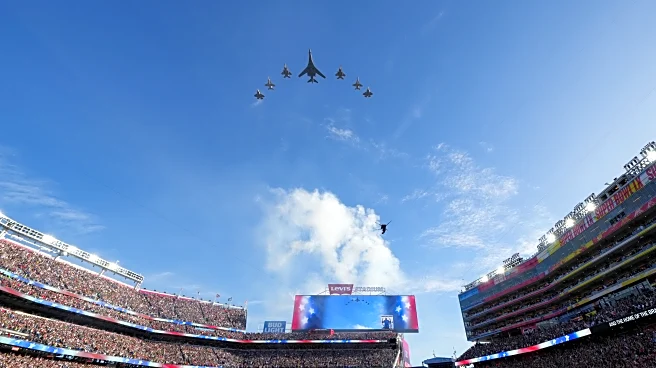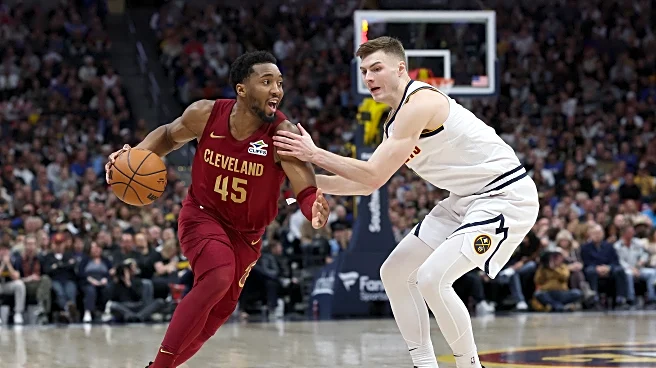What's Happening?
On July 7, 2025, the Los Angeles Dodgers partnered with Toei Animation to host a One Piece promotional event at their stadium. The first 40,000 attendees received a straw hat and a trading card featuring Monkey D. Luffy, the main character of the One Piece series, depicted in a Dodgers uniform. This collaboration highlights the cultural crossover between sports and popular anime, attracting fans from both domains. The trading card has become a sought-after collectible, with a PSA 10 graded card selling for as high as $3,500. The event also featured Dodgers pitcher Yoshinobu Yamamoto, who was the starting pitcher on the promotional day.
Why It's Important?
This event signifies the growing influence of anime culture in mainstream American entertainment and sports. By integrating a popular anime character into a baseball event, the Dodgers tapped into a diverse fan base, potentially increasing their reach and engagement. The collaboration also underscores the lucrative market for collectibles, as evidenced by the trading card's high resale value. This trend could encourage other sports teams to explore similar partnerships, blending entertainment genres to enhance fan experiences and drive merchandise sales.
What's Next?
The success of this promotional event may lead to more collaborations between sports teams and entertainment franchises, particularly those with strong fan followings like anime. The Dodgers and other teams might consider similar events to capitalize on the crossover appeal and boost attendance. Additionally, the trading card market could see increased interest in anime-themed sports memorabilia, prompting collectors to invest in such items. Future events could further explore interactive experiences, such as themed merchandise or digital content, to deepen fan engagement.
Beyond the Headlines
This collaboration highlights the evolving landscape of sports marketing, where traditional boundaries between entertainment sectors are increasingly blurred. It raises questions about the role of cultural icons in sports branding and how these partnerships can redefine fan loyalty and engagement. The event also reflects broader trends in globalization, where cultural products from different regions influence and integrate into local markets, fostering a more interconnected entertainment industry.











